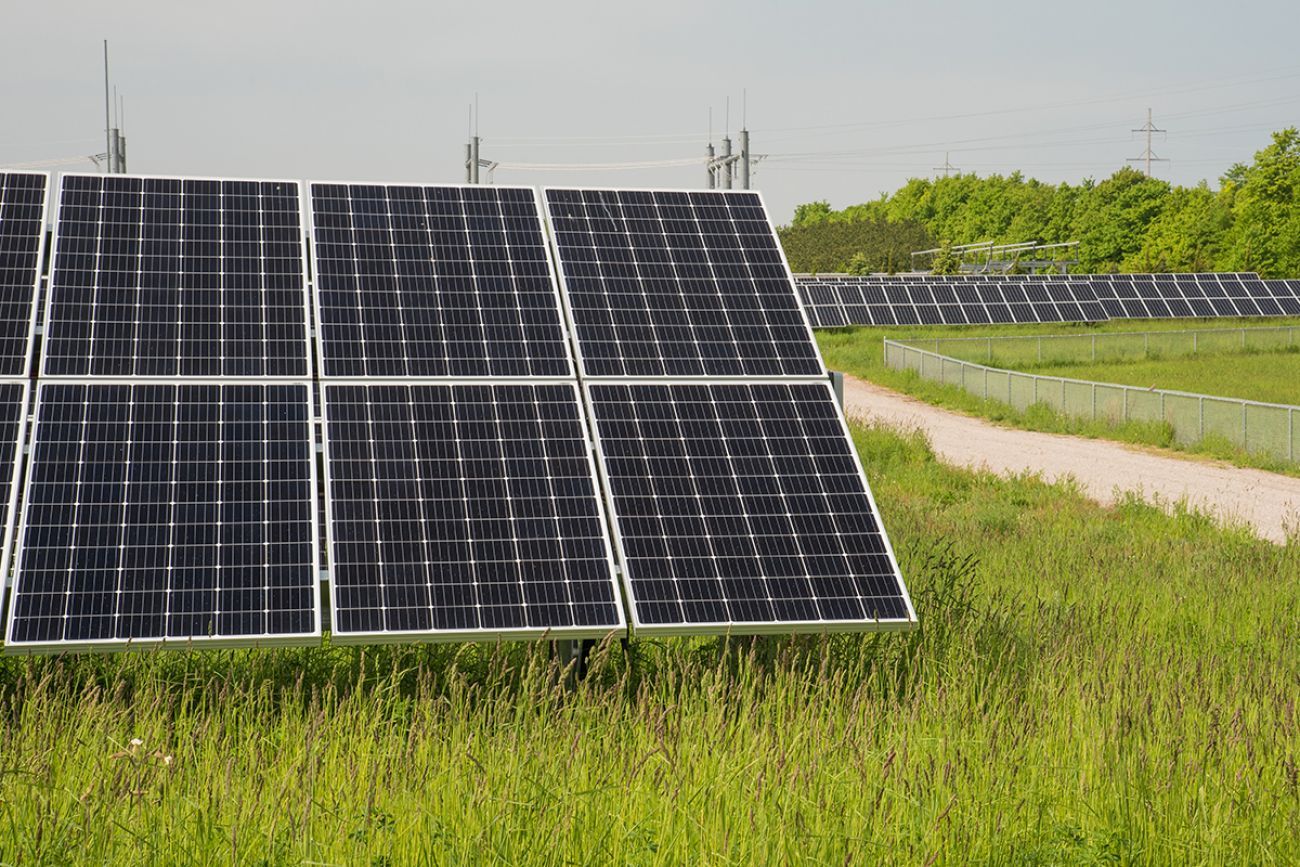Democratic control of Michigan puts climate change action on 2023 agenda

- Gov. Whitmer wants the Legislature to put into law her climate plans for her second term in office.
- With Dems controlling Lansing, environmentalists have a long climate wish list
- So far, lawmakers aren’t getting specific about their climate goals
As Gov. Gretchen Whitmer considered top priorities for her second term in Lansing, she landed on a big one for the environment: Codify the goals laid out in her administration’s climate action plan into Michigan law.
Released in April, the 58-page plan serves as the state’s blueprint to achieve carbon neutrality by mid century. It recommends a range of actions, from requiring utilities to get more of their electricity from renewable sources, to financial incentives for electric vehicles and a build-out of infrastructure to support 2 million EVs by 2030.
Whitmer called it “well-crafted, informed and doable,” in an interview shortly before the November election, but said following through on the plan's recommendations would require a legislature that “understands the importance of taking action on the climate.”
Related:
- Tudor Dixon and Gretchen Whitmer polar opposites on Michigan environment
- Mid-Michigan smacks down wind energy. Will it harm the state’s green plan?
- What’s in Senate climate bill for Michigan? EV credits and cheaper insulin.
With Democrats now in control of the Governor’s mansion and both Legislative chambers, policy experts and environmentalists say 2023 could be the year to enact climate policies that were non-starters under Republican control.
Activists have a long wishlist, from requiring the state’s utilities to adopt renewable energy faster, to speeding up the electric vehicle transition, to helping utilities build out wind and solar projects and making it easier for Michigan residents to invest in renewables and cope with extreme weather.
But with the party’s margins narrow and issues like the economy, gun control and abortion still dominating public discourse, it remains to be seen just how much traction climate issues will get in Lansing. Whitmer and legislative leaders aren’t showing their cards.
“I haven’t had the opportunity to go through everything and really prioritize,” Whitmer told Bridge in a second interview shortly after the election. “But I do think that now we are in a position where we are going to be able to ensure that a lot of these policy changes will transcend a change in administration.”
Incoming House Speaker Joe Tate did not respond to interview requests from Bridge about environmental priorities for the House. A legislative assistant for incoming Senate Majority Leader Winnie Brinks told a Bridge reporter to follow up in January. Democratic members of the House and Senate energy committees also declined to comment.
But Bridge spoke to activists, industry officials and other lawmakers about their climate priorities for the coming session. Here are some issues that could be on the table:
Boosting Michigan’s clean energy standard
As emitters of a quarter of the nation’s greenhouse gas emissions — a share that could grow as automobiles switch from gas to plug-in — actions taken by U.S. electric utilities could make or break the country's climate plans.
Michigan lawmakers recognized that reality in 2016, when they passed sweeping energy law reforms including a requirement for utilities to get 15 percent of their energy from renewable sources by 2021.
To keep up the momentum, Whitmer and many environmentalists contend it’s time for an update.
The governor’s climate plan calls for a renewable energy standard of 50 percent by 2030, and Charlotte Jameson, chief policy officer with the Michigan Environmental Council, said the issue could arise next session as part of push for broader reforms like those passed in 2016.
The environmental council wants a standard that would require 100 percent carbon-free power by 2040. Without such a requirement, Jameson said, utilities may remain “heavily reliant on gas” as a replacement fuel when they close coal plants, instead of investing more heavily in wind and solar.
Democrats, including outgoing Rep. Yousef Rabhi, D-Ann Arbor, have repeatedly introduced bills that would boost Michigan’s standard, but they have failed to gain traction in the Republican-led Legislature. Rabhi said he sees new hope for their passage as Democrats take power in Lansing
“Frankly, a lot of people went out and campaigned on these ideas,” Rabhi said. “Now is the time to deliver.”
But such an effort is likely to face pushback from utility officials, who say market dynamics and federal financial incentives already push them toward renewable energy faster by the day. Setting timelines in stone, they argue, could lead to premature closure of fossil fuel plants, resulting in higher costs and less-reliable power for customers.
Utilities are running at “an all out sprint,” said Andy Coulouris, DTE Energy’s vice president of corporate and government affairs.
“That’s happening not because of any mandates,” Coulouris said. “It’s happening because the technology supports it, the economics support it and, increasingly, our customers and our stakeholders expect it.”
Brandon Hofmeister, senior vice president of governmental, regulatory and public affairs at Consumers Energy, said the company is open to discussing a renewable energy standard, but called 50 percent by 2030 “pretty aggressive.” The utility is on-track to get a little more than 40 percent of its electricity from renewables by 2030, he said.
Hofmeister contended that the biggest barrier to decarbonizing Michigan’s electric grid may not be utilities’ willingness to build wind and solar arrays. Instead, he said, it’s getting permission to build in local communities.
Wind and solar siting and taxation
As Bridge recently reported, renewable energy developers are increasingly facing opposition to wind and solar arrays by neighbors who fear declining property values and sullied views if the arrays are built nearby.
That opposition has frequently resulted in local-level moratoriums on new solar development, or zoning decisions that scuttle developments already in the works.
Jameson, of MEC, said her group would like to see the Legislature tackle the renewable siting issue as part of a broader energy reform package.
It’s an area of general agreement between environmentalists and utilities. But still unclear is whether the solution might come from legislation to regulate some aspects of solar siting at the state level, education campaigns to sell locals on the benefits of hosting utility-scale wind and solar projects, or tax incentives to make solar more enticing to host communities.
Hofmeister also said he expects conversation in Lansing about revising tax policies to create “more stable” payments to local communities that host wind and solar, and expedited court reviews for lawsuits against renewable development permits.
Those efforts come as Consumers sues a host of Tuscola County schools and local governments to recoup millions in taxes after the State Tax Commission changed the tax depreciation schedule on wind developments.
“We have aspirations to build a lot of renewable energy,” Hofmeister said. “And to do that cost effectively, we’re going to need to move more swiftly and with more certainty.”
Electric vehicle policy
The Whitmer administration’s climate plan calls for 2 million electric vehicles on Michigan roads by 2030.
Hofmeister said Michigan is more likely to achieve that goal if it’s written into state policy, with a directive for regulatory agencies, utilities and others to start working toward it.
That could mean planning out additional charging stations to eliminate electric vehicle “range anxiety,” building out higher-capacity wires that can withstand the increased electrical consumption associated with plug-in cars, and making sure utilities can produce enough power to charge all those EVs.
“We’re the auto state,” Hofmeister said. “We really should be leading this.”
Michigan Environmental Council’s Jameson said her group, too, is interested in working on EV policy next session.
“I would love to see some additional teeth behind our electric vehicle expansion,” she said. “We've got a ton of incentives (to encourage EVs), but there's no sort of standards or requirements around the transition.”
Environmental justice advocates want to make sure public transit isn’t left out of those discussions, said Bridget Vial, energy democracy organizer with the Michigan Environmental Justice Coalition and MEJC Action. Vial wants more investment in public transit access and electrification, particularly in places like Detroit, where a quarter of households are car-free.
“People are taking public transit,” Vial said. “And people would take it a lot more if it came at least every 10 minutes, and it was predictable, and it was free or cheap. And it's so much easier to electrify a fleet of buses than it is to circulate out an entire fleet of vehicles.”
Local-level decarbonization
Vial is on the steering committee of a new environmental justice caucus launched early this year with members including Democratic lawmakers Rep. Abraham Aiyash of Hamtramck, Rep. Rachel Hood of Grand Rapids, and Sen. Erika Geiss of Taylor. Just before the election, she said, members voted to write “a gold-standard climate justice bill package.”
One goal, Vial said, is to place more of the financial benefits of climate action in the hands of Michigan residents, rather than companies that sell electricity and cars.
She hopes, for example, to see lawmakers direct some of the state’s budget surplus to weatherizing energy-inefficient homes, a move that would simultaneously reduce residents’ energy bills and the state’s carbon footprint.
Beyond using state dollars, Jameson said she expects a push to require utilities to make more effort to help their customers lower energy use.
And environmental justice advocates are gearing up for more fights over utility caps on rooftop solar payouts, and legal barriers to building out so-called “community solar” in Michigan.
Community solar is a term for solar arrays that are co-owned by, for example, a group of neighbors. Advocates tout them as a way to make renewable power accessible to renters or those who can’t afford rooftop panels. But with no Michigan law enabling such build-outs, Vial said, utilities have a “chokehold” on Michiganders’ access to renewable power.
Utilities, which profit off building utility-scale wind and solar arrays, are likely to resist such efforts. They contend that aggressively expanding large wind and solar arrays is cheaper than decarbonizing society on a roof-by-roof or neighborhood-by-neighborhood basis.
Climate preparedness
Decarbonizing Michigan’s energy is one thing. But with some amount of worsening climate change already guaranteed, Michigan will also need to prepare for worsening floods, warmer winters and more dramatic coastal erosion.
As Michigan considers how to spend a nearly $6 billion budget surplus, climate advocates want lawmakers to put money toward those efforts. There is plenty to do, from protecting shorelines, to preparing stormwater systems for heavier rainstorms, to reinforcing dams that can’t handle heavy floods or retrofitting homes for climate extremes.
Sen. Stephanie Chang, D-Detroit, championed bills in the last session that would direct funds toward those efforts. The package stalled in the legislature, but Chang said she expects to revive it in 2023.
While crafting ambitious wishlists, Chang and other climate advocates who spoke to Bridge said they’re remaining realistic about what a power shift in Lansing means for climate action.
“I know what I would like to see,” Chang said, “But I can’t speak for what the entire group is going to decide.”
Utilities, which oppose some of the policies favored by environmental groups, are powerful lobbying forces in Lansing. Business groups like the Michigan Chamber of Commerce and Detroit Chamber are urging Democrats to govern from the middle. And Republican legislative leaders, who will enter 2023 in the minority for the first time in decades, remain tepid on climate policy.
Incoming Senate Minority Leader Aric Nesbitt, R-Lawton, a key architect of Michigan’s 2016 energy law rewrite, said he finds those laws “sufficient.” He wants to instead focus on keeping Enbridge Line 5 in the Straits of Mackinac open and ensuring “we’re still producing oil and natural gas here in Michigan.”
Combine all those factors, said Barry Rabe, a University of Michigan professor who studies climate policy, and “I wouldn't necessarily lowball expectations. But I would temper those against the fact that the margins are narrow, there's a saturated agenda, a very inexperienced legislature and the 2024 elections are already here.”
Bridge reporter Jonathan Oosting contributed to this report.
Michigan Environment Watch
Michigan Environment Watch examines how public policy, industry, and other factors interact with the state’s trove of natural resources.
- See full coverage
- Subscribe
- Share tips and questions with Bridge environment reporter Kelly House
Michigan Environment Watch is made possible by generous financial support from:
Our generous Environment Watch underwriters encourage Bridge Michigan readers to also support civic journalism by becoming Bridge members. Please consider joining today.
See what new members are saying about why they donated to Bridge Michigan:
- “In order for this information to be accurate and unbiased it must be underwritten by its readers, not by special interests.” - Larry S.
- “Not many other media sources report on the topics Bridge does.” - Susan B.
- “Your journalism is outstanding and rare these days.” - Mark S.
If you want to ensure the future of nonpartisan, nonprofit Michigan journalism, please become a member today. You, too, will be asked why you donated and maybe we'll feature your quote next time!






